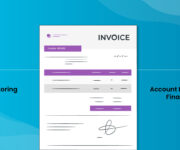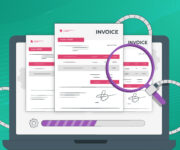Every small business owner begins by planning for success. However, in business, as in life, unforeseen events can throw a wrench into even the best-laid plans.
Unexpected expenses and slow-paying customers can cause cash flow to fall to dangerously low levels. While larger companies may be able to turn to more traditional solutions, such as a bank loan or line of credit, small business owners may not have those options.
This is where debt factoring comes into play. You can use debt factoring to sell your accounts receivable at a discount to a debt factoring company and receive a quick infusion of cash.
Let us dive deep into the topic.
How Does Debt Factoring Work?
Debt factoring is a financial transaction in which a business sells its outstanding accounts receivable (i.e., its customer invoices) to a third-party factor, at a discount, in exchange for immediate cash.
When your company decides to use debt factoring services, you will sell its outstanding invoices to a debt factoring company, either partially or entirely. You first offer your products and services to your customers and then bill them. These outstanding invoices are then sold to a third party, a debt factoring company.
The risk level will be determined by examining your debtor’s financial health. Debt factoring companies typically pay 80%-90% of invoice payments (usually between 80%-90%). Your clients’ funds are transferred directly to the third party, and you receive the outstanding balance once the factoring company receives the payments.
Here’s an example to illustrate how debt factoring works:
Suppose ABC Inc. provides goods and services to its customers and has $100,000 in accounts receivable. ABC Inc. faces a cash flow problem and needs money to pay its bills and employees and purchase raw materials.
It decides to factor its accounts receivable rather than wait 30, 60, or even 90 days for customer payment. A factoring company accepts ABC Inc.’s accounts receivable for $95,000.
In exchange for $95,000 in cash, ABC Inc. uses the factoring company to collect customer payments. Factoring companies accept customers’ payments and keep a small fee (usually 2-3% of the invoice amount)
With the help of a factoring company, ABC Inc. could access the cash it needed to continue operating without waiting for customers to pay.
Since factoring companies charge fees, debt factoring is usually used for short-term cash flow issues and is more expensive than other financing options, such as bank loans.
3 Key Advantages of Debt Factoring
Here’s a list of the advantages of debt factoring:
1. Increases cash flow
Cash is received as soon as the invoice is sold, providing greater control over investment and growth decisions and, as a result, improved business operations. This quick injection of cash can smooth over any short-term financial issues, allowing a business to survive in some cases.
2. Saves time and resources
Freeing up time is facilitated partly by improved cash flow and by releasing resources required when chasing unpaid invoices. It enables you to run the business more efficiently, focusing on growth and improved operations.
3. Enhances growth prospects
If the money received from the debt factoring company is wisely invested, it can result in tremendous growth. As the company’s growth improves and it can build a solid customer base with more funds available, it may reduce its reliance on debt factoring.
Some Disadvantages of debt factoring
-
Short-term debt
While debt factoring has many advantages, it causes the company to incur short-term debt. If the customer does not pay the invoice to the debt factoring company on maturity or if there is a dispute, the borrower is in debt to the financer.
- No control over the sales ledger
As the debt factoring company assumes responsibility for chasing down invoice payments, the business loses some control over its sales ledger, as well as confidentiality and customer relationship.
-
Reduces profit and expensive
Debt factoring can also reduce your profit because you receive less than the total value of the invoice.
Is Debt Factoring Appropriate for My Business?
Debt factoring can be a good short-term financing option for B2B companies with unpaid invoices. In addition, it can be a profitable business for lenders since they can collect fees for the service provided to companies and earn interest on cash advances.
This type of funding can assist you in managing your cash flow, covering day-to-day expenses, and promoting business growth.
Startups and businesses with poor credit may consider debt factoring if they cannot qualify for other options and have outstanding invoices.
Summing up
A business’s decision about whether debt factoring is a good idea depends on the specifics of its situation. It can provide an organisation quick access to cash by selling its receivables to a third party at a discount. While this can help manage cash flow, it also requires the business to give up some of its outstanding debt.
The benefits of improved cash flow must be weighed against the costs of factoring, including the loss of control over customer relationships, fees, and interest rates that may occur. You must thoroughly research and compare different factoring companies and their terms before deciding which factoring company to choose.
Using FinTech has also made debt factoring easier. With digital platforms, lenders can reach a wide range of SMEs seeking financing and more effectively managing their investments. One such fintech solution is Finezza.
Finezza: Your Partner for Lending Lifecycle Management Platform and other services
Finezza’s cutting-edge suite of products, like the Loan Management System and Collection Management System, meets the demands of today’s lenders with greater sophistication and customer-centricity. You can easily track loans, manage delinquency, and collect debts using this service, and you can always access vital debt collection information.




Leave a Reply